#posting like jean-baptiste grenouille
Explore tagged Tumblr posts
Text
maybe im genuinely going crazy but girl musk is a real thing. like girls have little folds and spots where they just smell so irresistibly good. I can even smell my own
4 notes
·
View notes
Text
started rereading perfume and realized that baby grenouille is literally the “when I was a baby I was evil C:” book
#perfume#patrick süskind#jean baptiste grenouille#I may be stoned shouting into the void about something that no one will understand at all#it’s a little booklet all drawn in marker and the first page is a swaddled baby smiling and the caption says when I was a baby I was evil#no one knows how the rest of it goes#someone just found it in a public library and posted about it online#anyway I pick up this book after reading it almost ten years ago and I’m like wait a minute
1 note
·
View note
Text
THIS POST IS FOR EMOUNMASKED AND EMOUNMASKED ONLY
since emounmasked has ryan ross in their list of problematic emos i wanted to help them find some dirt on him. ryan is 'perceived' as an all around good guy so i understand that it'd be hard to cancel him. so without further ado
his name isn't even ryan it's george. if he's been lying about his name what else has he been lying about?
he? did? drugs? i mean he's been sober for a long time and there's no real proof that he was ever addicted to hard drugs. but he might have been. idk guys i dont think i can support that kind of behavior.
he cheated on keltie? i mean it was a long time ago, he was young, the relationship was not really perfect and it's none of my business what people do in their personal lives but i dont know if anyone should stan someone like that
time to dance is transphobic. remember 'boys will be boys hiding in oestrogen and wearing aubergine dreams'? i heard it's based on a book and might have different connotations but i can't read so
ryan ross is transphobic. his manager shane, who has sabotaged his career multiple times and has a brother named ryan posted a chat where he misgendered a trans person
he's been wearing the same 2 shirts for about a year now. clearly a sign of poor hygiene. his white shirts are tattered and he obviously can't afford a new one. god i hate poor people
someone said that he doean't smell like anything. you know who else didn't have a smell? jean baptiste grenouille, the protagonist of perfume. and he was a murderer so clearly RYAN ROSS IS A COLD-BLOODED KILLER
RYAN ROSS IS A NECROPHILE. have you seen the bad list mv?? he parades around the corpse of z berg all around town and has a Romantic Relationship with A CORPSE
he has been away from the internet for a long long time. his fans have to scour his friends' instas to catch a glimpse of him. clearly he doesn't care about them. plus we have this

he wouldn't have made a mistake if he really cared. RYAN ROSS DOES NOT CARE ABOUT HIS FANS
he tried to hug a fan without her asking him to??? does he not understand what boundaries are???
please reblog with other problematic things he has done. together we can help emounmasked cancel ryan ross once and for all
48 notes
·
View notes
Text
Daisies & Death
Midsommar, 2019 Ari Aster film. Hannibal tv show; Perfume by Patrick Süskind; Hozier and Wasteland, Baby! by Hozier.
Midsommar is a horror movie, and I like it so much I’ve watched it multiple times. If you know me, you know that’s a big deal.
Midsommar is centered on Dani, played by the incredible Florence Pugh. It’s the story of how she, her boyfriend Christian, and his fellow PhD students, Mark and Josh, visit a commune in rural Sweden for a midsummer festival, at the invitation of their other friend Pelle, who grew up there. I love the different scales of conflict in this move—Dani dealing with her grief for her recently decreased parents and sister, Dani versus her (pretty shitty) boyfriend, the outsider visitors against the denizens of the Hårga—it’s like stories within stories.
Also, the visuals of this film are gorgeously unsettling. It’s all clear blue skies and green fields, hallucinogenic mushrooms and wildflowers. This is not your typical thriller where everything is so dark and shadowed that you have to squint at the screen to see anything, it’s just the opposite. I love this movie for how it plays with the juxtaposition between horror and aesthetic brightness, so if that sounds interesting to you, definitely check it out.
I probably never would have watched Hannibal by myself, but it’s a favorite of one of my best friends so he convinced me to give it a shot and we watched it together. I actually ended up loving it. It’s an extremely gory and dark tv show about a cannibal who’s also a psychiatrist who meets an FBI profiler with an empathy disorder, but it’s so excellently done. If you liked the mix of beauty and brutality of Midsommar, try this, which dials that up to the max—in one episode, a pair of victims are posed among flowers to look like Botticelli’s painting Primavera.
Perfume by Patrick Süskind is the story of a very strange man in the 1700s who possesses an unnaturally good sense of smell. A historical novel with elements of fantasy, there’s lots murder, detailed explanations of the art of perfumery, and rich descriptions of the things that the main character, Jean-Baptiste Grenouille, smells as he lives and works (and kills) in Paris and Grasse, France. It’s originally written in German, but I can say at least the English translation is excellent.
Let’s finish with something a bit softer. I adore the music of Hozier, and have listened to both his albums—his first, self titled, and his 2019 Wasteland, Baby!—many, many times. Several of his songs fit this post’s theme, including one of my favorites, “In A Week,” which is about two lovers’ bodies decaying side by side. See also “Work Song” (“when my time comes around/lay me gently in the cold dark earth/no grave can hold my body down/I’ll crawl home to her”) and “Shrike.”
1 note
·
View note
Text
VIXX “Scentist” analysis based on “Perfume”, by P. Suskind PART I - The MV (1/2)
“Scentist” is definitely one of my favorite songs/ music videos/ concepts in kpop so last year, when I got to know it was based on a book, I went after and read it. Since then I’ve been wanting to share an analysis focused on more direct references to Suskind’s story.
In “PART I” I’ll be giving my thoughts on how the Music Video is related to the book. Since it turned out quite long, there will be two posts.

Some considerations i. This analysis does not really explain the story in the MV itself, since it has a lot more factors involving stuff (apparently) specifically made for Vixx. There are many interesting theories posted by other Starlights though.
ii. I didn’t originally read the book in English, so I’m using my own translations – which can differ from other editions.
iii. This is somewhat a personal interpretation; one could read the same book and have different opinions. Feel free to tell me your thoughts about it :^)
iv. As referred before, English is not my first language. Feel free to let me know about any mistakes.
v. Mind that this analysis contains SPOILERS of the book.
vi. This post makes reference to sensitive subjects (such as violence), like the book itself.
The structure of the analysis I decided to follow the plot of the book rather than the sequence shown in the music video and I divided the whole analysis in parts.
The book “In the XVIII century France, Jean-Baptist Grenouille is a young man with a sublime gift – an absolute ability to perceive odors. He doesn’t have any smell himself. Obsessed with capturing scents, one day he smells an fragrance that will take him into a disturbing search for the world’s most powerful perfume – one capable of dominating people’s hearts.”
The novel is divided into four parts: in the first post (1/2) I will talk about the 1st and 2nd, and in the second (2/2) about 3rd and 4th.
* * * FIRST PART In the first part of the novel, we get to follow Grenouille’s birth and youth. When he was born, he almost died, however he was found out and taken care of by different people before being sent away to a sort of orphanage. As a kid, he went through many illnesses and accidents, which left many scars – but he was very resistant.
The boy had a late and slow development process. By this time he was conscious of his outstanding ability for smelling and began to build his inner aromas library, combining them to create new ones. He mostly shut himself from the world and avoided interaction.
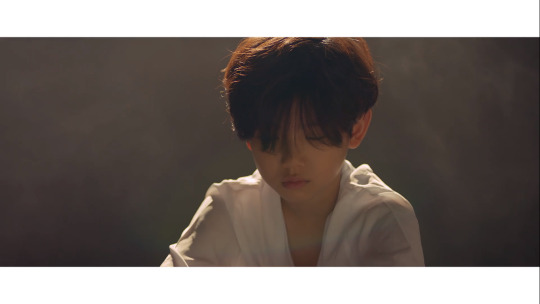
[Image 01 - 0:56 sec] This can be a representation of the young Grenouille, lost in his thoughts and imagination regarding what he smells.

[Image 01.2 - 1:36 min] The lenses some members use are the color in which the boy’s eyes are described: a tone between grey and opal-blue.
When he was 8 years old and the convent ceases from sending money, he was exchanged at a tannery. He was supposed to do the heavy work and quietly subordinates himself to his boss’ orders.
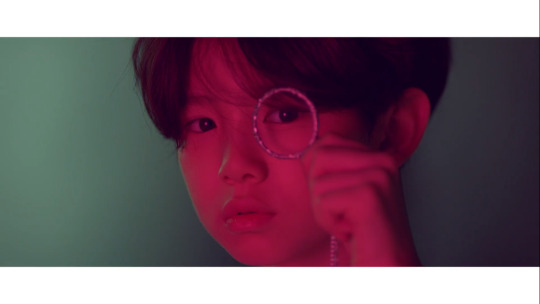
[Image 02 - 0:39 sec] I associate this to the unique way Grenouille had to view the outside world, always on the look for the finest, undetectable smells.
“He is very greedy and takes in any sort of smell; he wished to posses all kinds the world had to offer.”
In a night of celebration, during a firework show, he felt a really soft aroma – one he had never sensed before and superior to anything he had ever known. He felt an urge in his heart to posses that scent. He is confused when he’s led to a girl, since he didn’t think a human could smell to anything good. He ends up killing her, only worrying about not missing the scent.

[Image 03 - 1:41 min] I like to associate this scene to the night he first feels that special scent. Leo is seen with his eyes closed, which relates to both Grenouille conducting himself in the dark and being pulled by the scent, allured by that sensation.
“This is when he understands his fate is to be the greatest perfumer of all times.”
When delivering suede, he meets an old traditionalist Italian perfumer – who had great knowledge, but not much natural talent – and tells him he wishes to be his apprentice. He proves his ability by making a perfume. At first, the man was horrified by his non-methodical ways but is suddenly dumbstruck by the smell. Grenouille frenetically created many scents everyday. This is when he learns appropriate methods to work, how to use formulas and the first techniques for isolating essences.

[Image 04 - 0:51 sec] This would represent Grenouille making perfumes by measuring the ingredients, noting and starting to view them as formulas.

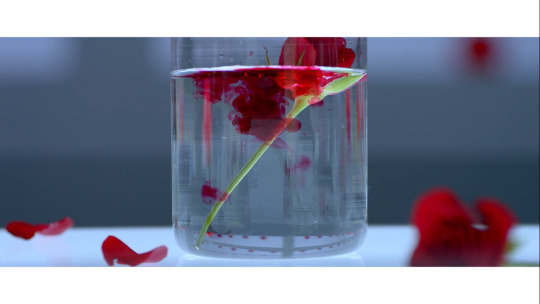
[Image 05 - 0:52 sec] [Image 06 - 0:32 sec] The images showing flowers in a sort of liquid makes reference to the process of extracting their essences.


[Image 07 - 0:55 sec] [Image 08 - 0:27 sec] Here, Hongbin watches and waits as the drops of essence (usually oils) get collected.
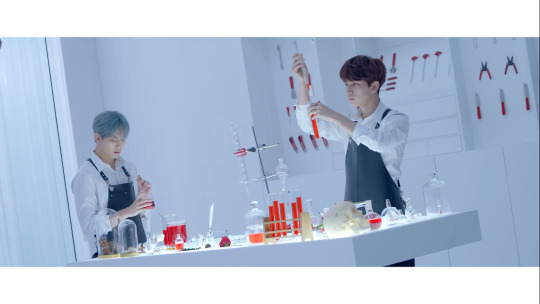
[Image 09 - 0:34 sec] I associate this scene to the fragrances Grenouille creates combining mentally the smells he knows; Hongbin and Hyuk would be the representation of his work in a kind of “inner laboratory”.
He began tracing a scheme on how he would use that knowledge in the near future plans. He starts experimenting. However, when failing to obtain essences from objects and other unusual materials, he stopped and fell deadly ill. Only after being told there are other methods, he recovers. They get to an agreement so that he would be permitted to go. With his title of auxiliary and new skills, he begins a new journey.

[Image 10 - 1:13 min] Although I was confused by the car, I generally associate it with Grenouille’s journey and travelling (which will keep on in the future, as we will see); at this point, it would represent him leaving the city.
* * * SECOND PART This is the period when Grenouille’s seclusion takes place. The farther he walked from Paris the better he felt and his nose became more sensible the more he got used to nature. It became unbearable to have any kind of human smell around him, it was disgusting. He began walking only at night. He goes to the most isolated place in the kingdom, the peak of a 2000 meters mountain. He finds a faint stream of water, small animals and plants to feed himself with, as well as a cave; at its bottom, there were a tight place he felt had never been touched by a living being – he laid there and only left for basic needs. He would get lost for days in his inner empire, filled with the smells in his memory.


[Image 11 - 0:05 sec] [Image 12 - 1:38 min] This would be the moment Grenouille finds and enters the cave.
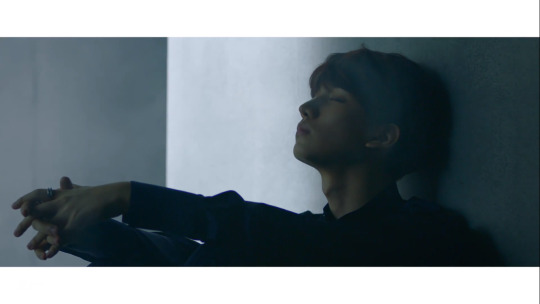
[Image 13 - 0:04 sec] I associate this with Grenouille reaching the bottom of the cave and feeling at ease by setting in that place.
He fell into a deep sleep (almost as if hibernating), and created whole settings making use of smells of the things he wanted to be a part of his perfect kingdom, where he reigned supreme. He felt home in his purple castle.



[Image 14 - 0:25 sec] [Image 15 - 0:46 sec] [Image 16 - 0:46 sec] This represents Jean-Baptist during his sleep inside the cave, dreaming of his kingdom and palace.
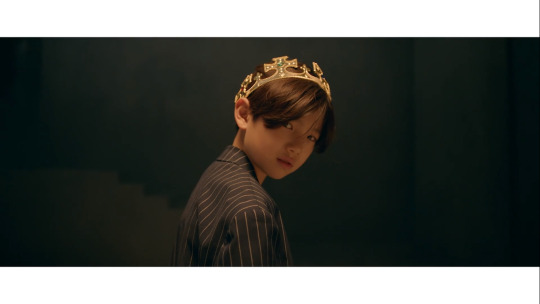
[Image 17 - 2:30 min] Here, the boy representing Grenouille appears again, this time wearing his crown, as he rules his inner kingdom built of smells.
In his purple salon, resting on a sofa, he asks imaginary servers to bring him volumes from his scents library and bottles of the finest smells to drink. As he did so, he was delighted by pleasure and peace. He drinks the girl’s aroma for last. Drunk, he falls asleep.

[Image 18 - 1:21 min] Serving as a background throughout the MV, Ken stands in front of the scents storage, which Grenouille savors as drinks by bringing them back from his memory.


[Image 19 - 1:18 min] [Image 20 - 2:09 min] The representation of the aroma drinks being served.
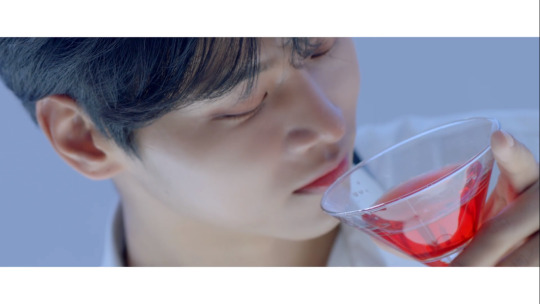
[Image 21 - 2:25 min] N, as Grenouille, appreciating one of the memories (possibly the girl’s scent, judging by his reaction).
The outer world was completely hostile to him. He stayed like this for 7 years. However, one day a catastrophe happened in his fantasy. While sleeping in the salon, slowly, a cloud of smell began to take over the place. It was his own smell, but the boy gets desperate finding out he couldn’t feel a thing.
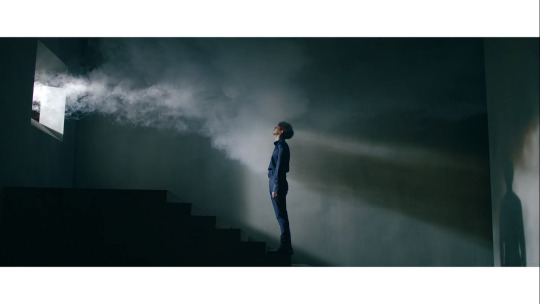
[Image 22 - 1:38 min] This could a be representation of Grenouille observing and reflecting over the mist taking over his fantasy.
He screamed terribly, destroying the walls of his kingdom. Even scared by the uncertainty of not being able to smell something, when he is sure there’s no odor, he puts his clothes rags on and leaves.
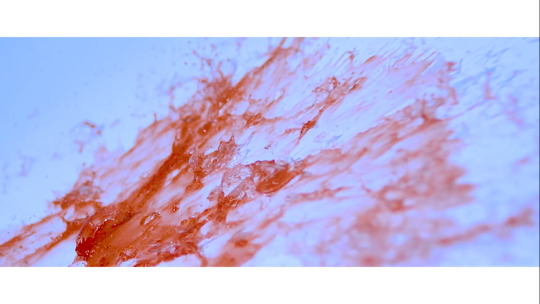
[Image 23 - 0:52 sec] The crashing glass could represent the destruction of the palace when Grenouille is taken by the fear of not smelling himself. (Note: I also considered whether this scene was related to Grenouille’s frustration when he fails to obtain the essences, during his period working for the perfurmer, specially taking to account the sequence it’s shown along in the MV).

[Image 24 - 2:46 min] I associate this to Grenouille once again considering going out of the cave into the outside world, as Hyuk is seen bathed by exterior light.
Grenouille looked terrible; he tells people he had been robbed and kidnapped, being kept captive for 7 years in a cave. He is then taken to to a Marquis who dedicated his life to science and led a study on the relation between the proximity to earth and vital energy. He is invited to the Marquis’ castle and showed off to the academic community in Montpellier. Grenouille was fed and groomed. It was the first time he was addressed as monsieur and the first time he saw himself in a mirror.

[Image 25 - 1:26 min] Grenouille sees himself in the mirror. We can associate this to the impression he causes in himself; somehow a boy looking at a man, with many hidden goals deep inside. He describes the image as a “(…) figure disguised as a person (...)” - he thinks all that was because of the clothes and makeup (rather than the Marquis curing him or a change of character).
Making use of some excuses, he gets to use the laboratory of a local perfumery and makes a fragrance to spray himself with and smell “like a human”. Walking around to test its effectiveness, for the first time, people finally noticed his presence (in a very natural way).
“He understood he could overcome what he just did and create a perfume able to make people love him, fall on their knees for him without knowing the reason why. He wanted to dominate their hearts. The omnipotent God of aroma.”
References used: - Book: Perfume, the story of a murderer; by P. Suskind (2007 ed., Editora Record). - 빅스(VIXX) - '향 (Scentist)' Official M/V (YouTube). - Film: Perfume, the story of a murderer (2006).
To be continued...here!
10 notes
·
View notes
Text
@lamialee tagged me a billion years ago, sorry it took so long, love!
Nickname: widge Star sign: Gemini Height: 6′ Time Right Now: 08:11pm Favorite musical artist: Currently I’m really into Michelle Gurevich. Song stuck in your head: Pet Semetary by The Ramones was playing in my head a lot this week Last movie watched: Rewatched Ant-Man, they guy I have a crush on looks like Corey Stoll’s and James’ lovechild, it’s very distracting. Last Tv show watched: American Gods. It’s getting better and better. What are you wearing right now: Oversized pullover and panties.(ooooohhhh sexy! Not really, there are burrito stains on the shirt xD) When did you create your blog: Almost exactly five years ago. What kind of stuff do you post: James McAvoy craziness and some random shit in between Do you have any other blogs: technically yes. I’m terrible at maintaining them. Do you get Asks regularly: not regularly, no Why did you choose your URL: spur of the moment Gender: Female Hogwarts House: Funny story: when I initially joined Pottermore I was sorted into Hufflepuff and I was a very proud Hufflepuff. Then I forgot my password and when I rejoined I was sorted into Ravenclaw. Have to learn to live with this now. Pokémon Team: There are teams? Favorite color: green Average hours of sleep: 7-8 Lucky number: 7 Favorite characters: Madame Merteuil, Bruce Robertson, Jean-Baptiste Grenouille... etc. How many blankets do you sleep with: Depending on the season, 1-4- Dream job: James McAvoy’s butt petter. Following: 213
Tagging @issabella , @ohteepeeh, @gerec, @lachatblanche, @samerulesapply, @a-ard, @clickthefrog, @zaphodbeeblebro, @jabletown and everyone who wants to do this (seriously, I’m just a lazy tagger)
4 notes
·
View notes
Text
Book review- Perfume: The Story of a Murderer
In this era of technology, when one doesn’t have access to Netflix for watching movies/series or WhatsApp for texting in their travelling time; when she cannot use smartphone to read an e-book or listen to music while commuting in the metro because its not allowed at work (yeah, sounds weird? You bet!) – What is the most constructive thing she can do? Read.
So, I’ve read a variety of novels in a period of a year. Well, this post is a review of one that was pretty interesting a read: Perfume.
This is the story of Jean Baptiste Grenouille. He was born to a woman who got convicted due to previous case of infanticide. He was fostered however, unloved. He had something unusual about him: a gift: sense of smell. And, he himself had no smell emanating from him. He had such a strong nose that could distinguish odours, smell from distances, get attracted to some and get disgusted by some. As he grew older, he became more and more hateful to humans. He would mock humans: he thought they stink, had little respect for them. Not having understood what love was, he couldn’t gauge human emotions.
All this began when one day, once acquainted with all the smells in the city, he came across a unique aroma: the source of which was a young virgin girl who was passing through puberty. His nose led him to her and the feeling of possessing the smell; the aroma of which entrapped him into a trance-like state, made him kill her and breathed her scent till her body didn’t emanate it anymore. The book traces his life over his employment under Baldini, a great perfumer who teaches him the subtle art of brewing perfumes and distillation to bottle scents. The hatred towards humans changes to contempt when he realises how easily humans can get fooled with disguise of smell. He performed a chain of murdering teenage girls and was on the verge of getting convicted for the same. That’s when he used the same disguise to fool the crowd spectating his execution: a scent. He was able to change thoughts of the whole crowd, leading them to believe he was innocent. Just by using a particular kind of unique scent, he could change the human feeling diametrically from hate to pure love or vice versa. He didn’t understand love but used the perfume to surrender himself to humans as they shred his body in the name of love.
The author made me realise, through this book, how the human brain perceives smell and its effect on human behaviour. Could all of us be acting on the whims of a master perfumer? :)
0 notes
Photo
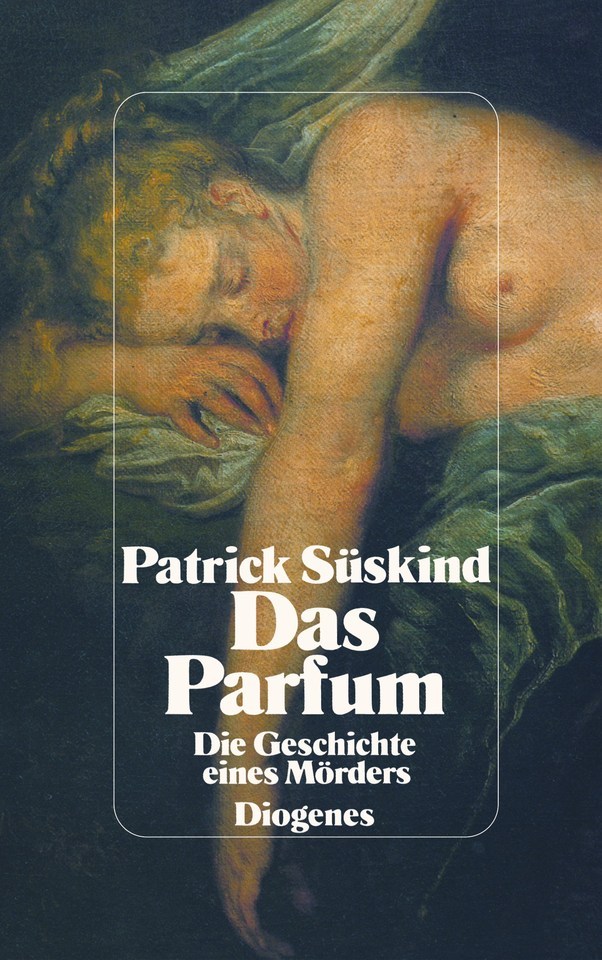
(via parfum_sueskind_cover_diogenes.jpg (213×340))
Notes:
When the labour pains began, Grenouille’s mother was standing at a fish stall in the rue aux Fers, scalingWhiting that she had just gutted. The fish, ostensibly taken that very morning from the Seine, already stank so vilely that the smell masked the odour of corpses. Grenouille’s mother, however, perceived the odour neither of the fish nor the corpses, for her sense of smell had bee utterly dulled, besides which her belly hurt and the pain deadened all susceptibility to sensate impressions. She only wanted the pain to stop, she wanted to put this revolting birth behind her as quickly as possible. It was her filth. She had effected all the others here at the fish booth, and all had been stillbirths, or semi-stillbirths, for the bloody meat that emerged had not differed greatly from the fish guts that lay there already, nor had lived much longer, and by evening the whole mess had been carted off to the graveyard or down to the river. [...] Grenouille’s mother wished that it was already over. And when the final contractions began, she squatted under the table and there gave birth like she had done 4 times before, and cut the new born things umbilical cord with her gutting knife. But then, on account of the heat and the stench, whcih she did not perceive as such but only as an unbearable, numbing something - like a field of lilies or a small room filled with too many narcissi - she grew faint, toppled to one side fell out from under the table to the street, and lay there knife in hand -pg 4
...he smelled it more precisely than many people could see it, for his perception was perception after the fact and thus of a higher order: an essence, a spirit of what had been, something undisturbed by the everyday accidents of the moment, like noise, glare, or the nauseating press of living human beings. -pg 36
It was a strange perfume that Grenouille created that day. there had never before been a stranger one on earth. It did not smell like a scent, but like a human being who gives off scent. If one had smelled this perfume in a dark room, one would have thought a second person was standing there. And if a human being, who smelled like a human being, had applied it, that person would have seemed to have the smell of two people, or, worse still, to be a monstrous double creature, like some figure that you can no longer clearly pinpoint because it looks blurred and out of focus, like something at the bottom of a lake beneath the shiver of waves. -pg 155
The blossoms were were emptied out in the workshop by the basketful into massive but lightweight and fragrant piles. Meanwhile, in a large cauldron Druot melted pork lard and beef tallow to make a creamy soup into which he pitched shovels of fresh blossoms, [...] They lay on the surface for a moment, like eyes facing instant death, and lost all colour the moment the spatula pushed them down into the warm, oily embrace. And at almost the same moment they wilted and withered, and death apparently came so rapidly upon them that they had no chouce but to exhale their last fragrant sighs into the very medium that drowned them; for - and Grenouille observed this with indescribable fascination - the more blossoms he stirred under into the cauldron, the sweeter the scent of the oil. And it was not that the dead blossoms continued to give off scent there in the oil - no the oil itself had appropriated the scent of the blossoms. Now and then the soup got too think, and they had to pour it quickly through a sieve, freeing it of macerated cadavers to make room for fresh blossoms. -pg 180
[Cold enfleurage] The souls of these noblest of blossoms could not be simply ripped from them, they had to be methodically coaxed away, In a special impregnating room, the flowers were strewn on glass plates smeared with cool oil, or wrapped in oil-soaked clothes; there they would die slowly in their sleep. It took three or four days for them to wither and exhale their scent into the adhering oil. Then they were carefully plucked off and new blossoms spread out. - pg 186
[thinking about using the last of his perfume] and then he saw, smelled, how his beloved scent would vanish in the air, irrevocably, for ever. It would be a long slow death, a kind of suffocation in reverse, an agonising gradual self-evaporation into the wretched world. -pg 198
She had disappeared behind a hedge. And it took about two heartbeats longer than he expected before she emerged again- and he was frightened to death, for during those two heartbeats he thought he had lost her forever. -pg 210
http://www.westshore.edu/personal/mwnagle/Wciv/PerfumeAnalysis.htm :
Addressing the question of literary influences, Suskind claims to be a blissfully ignorant epigone whose memory is so poor that he barely remembers what he has read, much less who wrote it, which, it seems to him, is a fortunate handicap for a creative writer since it frees him from the anxiety of influence and creates an uncomplicated relation to plagiarism, without which, he paradoxically insists, nothing original can be written.
Suskind projects his concern with personal identity and literary persona onto the themes and characters of Das Parfum. Set in eighteenth-century France, Das Parfum tells the story of Jean-Baptiste Grenouille, a physically and emotionally abused orphan whose supernatural sense of smell guides him in a perverse search for the lost origin of his identity.
-deals with plagiarism and the enlightenment trope of individual autonomy-
Presumably, the implication that the writing subject of a novel like Das Parfum has been swallowed by the black hole of postmodern ecriture, only to re-emerge as an irrationally destructive and cynical parasite, is too frightening to contemplate in a culture clinging to the shreds of an uncohesive collective identity.
More than a parasitic parody that feeds on dead poets, Das Parfum can be productively interpreted as an enactment of literary anamnesia that contributes to a working through of complex psychic and social issues.
Grenouille's coldly rational plundering of the human body to create an ideal perfume is undeniably an allegory of the "murder" that instrumental reason commits on the objects of its reifying analysis
In the wake of the Enlightenment's demand for self-legislating subjectivity, so Bloom argues, the Romantic poet could no longer unquestioningly imitate previous models to develop a literary identity. Thus Bloom casts the Romantic poet as a version of the oedipal son who contests the father's priority, not in direct conflict, but by a defensive repression of the precursor's voice. To achieve authentic identity, the artistic imagination must define itself by rejecting anterior discourse and narcissistically seeking its own voice, constituting an ego by love of its own figurations.
For the Bloomian poet the literary equivalent of this narcissistic symbiosis is an initial affiliation with a central precursor: "the strong poet's love of his poetry, as itself, must exclude the reality of all other poetry, except what cannot be excluded, the initial identification with the poetry of the precursor." Thus, "the mystery of poetic style" is reduced to the "mystery of narcissism"
The result of this imaginative narcissism is a creative melancholia that promotes a literary amnesia.
Because originality becomes the post-Enlightenment law of creativity, Bloom argues that writers in the Romantic tradition (which he interprets broadly to include most canonical literature since the late eighteenth century) must refuse to mourn the loss of the idealized precursor by a process of self-defensive repression. "Poets," Bloom contends, "do not exist to accept griefs" (Yeats 5). Inevitably, such repression leads to an enormous diminishment of the creative ego, making Romantic poetry "the result of a more prodigious sublimation of imagination than Western poetry from Homer through Milton had to undergo" (Anxiety 125). As Freud cautioned in his essay "Trauer und Melancholie," a refusal to mourn causes a depressive melancholia, which can only be cured by a process of grieving called Trauerarbeit. What the melancholic must work through and overcome is the narcissistic fantasy of omnipotent mastery over the lost object. Absorbed into the unconscious, the unmourned object of love poisons the ego, whose reproaches against the lost object become self-reproaches and create symptoms of dejection, an inability to construct new idealizations, and above all a diminishment of self-esteem.
Undoing melancholic repression, citational play creates a discourse of mourning that undergirds and sustains both the philosophical and aesthetic practices of a postmodern culture confronted with the disintegration of Enlightenment master codes of unity and totalization.
- - - - - -
Indeed, one of the novel's most notable but least analyzed achievements is its expansion of the mad genius topos of Romanticism into a literary case study of the psychopathic mind. As a serial killer, Grenouille conforms to a profile established by current clinical research linking the narcissistic borderline personality with homicidal psychopaths. Citing early childhood traumas of abandonment and abuse as significant factors in criminal pathology, recent studies postulate that such traumatic events prevent the formation of stable self-structure, leading to the fusion of idealized objects with an unmodified grandiose self. In adult life the earlier developmental failure to differentiate the primitive grandiose self from idealized objects results in a repeated failure to identify with social norms, especially moral codes, which leads to antisocial acts expressing unconscious abandonment rage
E. T. A. Hoffmann's tale Das Fraulein von Scuderi -contains Cardillac who’s mother while pregnant with him desired a man only due to the beautiful gems he offered her, when she grasped them he died and her hysteria was transferred to the foetus triggering the formation of a creative imagination obsessed with fetishized works of art whose violent retrieval compensates a primal narcissistic wound. Cardillac went on to become a master jeweller who would Oedipally create beautiful jewellery/works of art precisely so that he can take them back: The crucial element in Hoffmann's portrait of the artist is a compensatory mechanism. [maybe u were on to something with pygmaliolism]
Parodying the Enlightenment conception of Bildung as a progression toward an autonomous ego, Grenouille's formative relationships promote only regressions to primitive ego states in which compensatory fantasies of infantile omnipotence replace the mature resolution of dependency issues.
The artist creates as a result of a deeply rooted need to restore structural deficits in the core self. On this point Suskind's text is unambiguous: To tame and structure his incoherent internal universe, Grenouille must assimilate an idealized feminine scent. His most urgent need is to reinscribe a feeling of symbiotic unity into his disintegrating self-structure.
In such an allegory of creativity, regression to an antecedent stage emerges as a psychopoetic metaphor consistent with the Bloomian notion of the creative genius who unconsciously reactivates a primal affiliation with a central precursor and imaginatively regresses to a state of primary narcissism. Although Bloom seems unaware of it, his idea finds support in the aesthetics of object relations theory, which shifts the conception of creativity from classical Freudian sublimation to a compensatory idealization of the self. In post-Freudian psychoanalysis it has long been the consensus that artists work to restore a lost beauty and perfection that was once their own. By inventing an idealized object onto which primitive fantasies of omnipotence are projected, artists enact a mourning of the lost omnipotence of the primitive grandiose self (Layton and Schapiro 23-36). Especially artists who exhibit an exaggerated concern with wholeness and ideal beauty are unconsciously attempting to restore the blissful perfection of archaic narcissism associated with the idealized self-object. Suskind and Hoffmann, however, who depict the psychic abnormalities that often underlie aesthetic idealism, parody the artistic fetishism of Romantic idealism. Rather than disavowing the pain of a primal wound by regressing to the imaginary perfection of primary narcissism, their fantasies recreate sites of emotional injury in search of psychic insight and reparation.
Without such pre-oedipal triangulation, the child remains suspended in a regressed state of primary narcissism. In Das Parfum the image used to convey this emotional stunting is the tick, a parasite that withdraws into itself and survives on a single drop of blood for years. Like the tick, Grenouille requires only a minimum of nutriments, especially in the psychological sense
In this metaphorical description of the regressive borderline personality the psychoanalytic significance of Grenouille's name emerges: Grenouille (French for frog) is Suskind's metaphor for the liminality and failure of identification that characterize the narcissistic condition.
Unlike Freud, whose patients suffered neurotic symptoms thought to result from unresolved oedipal guilt (like the hysterical reaction of Cardillac's mother to the intruder),contemporary psychoanalysts typically confront a depression signifying wounds to a primitive ego preceding the Oedipus. According to Kristeva, this profound sadness, the melancholia of the borderline personality, is perceived by its sufferer, as a "fundamental lack," or "congenital deficiency"
- - - - -
As the organizing allegory of a postmodern Kunstlerroman, the metaphor of perfume is particularly well chosen, for what would be a more appropriate trope for the self-deconstructing text than a composite mixture distilled from canonical essences, a parodic blend of the tradition's master codes and most seductive stylistic voices?
As the blatant citationality of Das Parfum shows, in postmodern kenosis the creative psyche is diminished not to clear space for a narcissistic genius who represses fetishized precursor texts but to dissolve the fantasy of omnipotence and redefine imaginative subjectivity as the fluid space of ecriture where singular authorial identity disappears and its repressed other, the citation, emerges in a hybrid intertextual construct. Tropingmultiple precursors, Suskind's pastiche foregrounds the creative process as an evacuation of literary identity and its reconstitution as a plurality of voices.
In postmodern pastiche, on the other hand, the myth of singular voice fostered by the Enlightenment ideal of individual autonomy is abandoned and the dead ancestors return in citational clusters.
In a similar fashion, the novel's concluding image of self-extinction mirrors the postmodern kenosis of subjectivity. After achieving his highest ambition of being loved unconditionally and then realizing that this love is only a manufactured illusion, Grenouille commits suicide by drenching himself with his ideal perfume and throwing himself to a crowd of riffraff, who tear him to pieces and consume his body in an act of "love." The corporeal sacrifice and redemptive reincorporation suggested by this cannibalization is amplified by a cluster of allusions including, most obviously, the Christian crucifixion, as well as the Euripidean dismemberment of Pentheus by the Dionysian maenads, the latter representing the defeat of the rational ego in both the classical text and its postmodern adaptation. Additionally, the image resonates with Kleist's Penthesilea, which also ends with the devouring of a wounded hero (Achilles) in an orally sadistic Liebestod. Reinhabiting ancient and sacred myths, these images of ingestion, communion, and redemption converge with the psychic necessity of introjective Trauerarbeit as a cure for wounded cultural identity. Grenouille's Christian name, Jean-Baptiste, further reinforces the interpretation: John the Baptist preached the gospel of redemption achieved by an identificatory communion performed in the name of the Father.
He refers to these regressive reveries as vintage wines, which he addictively imbibes to fortify himself against the painful emptiness of his depleted psyche. Sometimes these scented memories are called "books," which his servants retrieve from a "great library" implying that he, the aesthete, intoxicates himself with an excessive consumption of literary art. Ironically, despite this retreat from reality into the inner sanctum of his imagination, he is unable to defend himself against external influences, least of all from painful memories of rejection and abuse, which return in the scented memoirs he obsessively peruses. Similarly, the return of repressed Romantic and Symbolist texts is so pervasive in these chapters that many passages seem to consist of almost nothing but blatant plagiarizations (Ryan 399). Thus the aesthete's narcissistic fantasy of a self-enclosing realm is defeated by an underlying web of citations, commenting parodically on the perverse impossibility of self-origination.
Rather than repressing the ancestral voice blocking the epigone's access to some imagined Ursprache of poetic language, the postmodern imagination liberates itself from the narcissistic delusion of originality, converting creative anxiety into intertextual productivity. Thus, the postmodern writer, no longer the mythic, self-aggrandizing genius, is restored to the status of virtuoso, a term that in the premodern era signified a collector of art and highly skilled player. This is, in a productive sense, what the writing subject appears to become in the intertextual artistry that distinguishes Das Parfum as an allegory of postmodern creativity.
see: bauldilaire
0 notes
Note
"Yeah right you were reading E Germany.." Actually people do read magazines. But I'm sorry if I missed the new rule about not mentioning "her" ever again, anon. If you can't stand reading anything about her here you should crawl under a stone and wait until the air is clean. But it may take a while. Hope you won't end up like Jean-Baptiste Grenouille though...
Good God! ✋👃Damn that book was good tho! 🙈😣👍Not so much the movie. 😕(http://kmp78.tumblr.com/post/147887250529/disclaimer-and-rules)
0 notes